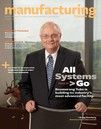Sales Incentives: Just What The Doctor Ordered?
Almost every sales organization in the country has, at one time, or another, used some form of sales incentives or awards program to stimulate a flat sales trend. Their use has become a staple in the arsenal of sales tools and is almost universally believed to be a sure fire solution to revitalizing a stagnant sales team.
After all, the increase in sales results is usually quick to occur and often dramatic in its success. Practitioners have long argued that awards extrinsically motivate employees without the financial or psychological costs of formal compensation. It is also a fact that monetary awards can powerfully motivate productive behavior. If this is the case, does it always follow that all sales incentive programs are good for business? Can businesses use sales incentives as a quick dose of medicine to cure a lingering sales problem? Or does the constant use of sales incentives lead to a crippled and demoralized sales force?
Do Incentives and Rewards Work?
Over the past four or five decades, several very in-depth, and scholarly studies have been conducted and they shed a not too flattering light on the traditionally held concepts of sales incentives. These studies have examined the potential fall-out of incentive and award programs and how they can affect the long-term performance of the incentive participants. This research suggests that, over all, rewards succeed at securing one thing only—temporary compliance. They do not create an enduring commitment to any value or action. Rather, incentives merely, and temporarily, change a person’s behavior.
Success, At What Cost?
As for productivity, at least two dozen studies over the last several decades have conclusively shown that people who expect to receive a reward for completing a task, or for doing that task successfully, simply do not perform as well as those who expect no reward, at all. Employees who lack motivation, in the absence of formal rewards, and thus exhibit low performance are the most likely to respond to the extrinsic motivation of an award.
These ‘reward motivated’ employees who previously performed poorly will strategically respond to the formal rules governing the award and will only take actions that directly increase their chances of winning. Additionally, reward motivated employees who respond to an award with increased performance will revert to their lower pre-award performance, once ineligible for the award.
Another implication is that employees will often exploit the incentive rules even when it is costly to the employer. This often involves ignoring unrewarded, but still important tasks, as well as strategically manipulating the formal rules to maximize the reward. Empirical research demonstrates that gaming is a common response to monetary reward systems. Furthermore, in an aggressive incentive campaign everyone is pressuring the system for individual gain. No one is improving the system for collective gain.
Relationships between supervisors and subordinates can also deteriorate under the pressure of incentives. Few things threaten the morale of an organization as much as a pack of incentive-driven individuals trying to gain favor with the person dispensing incentives.
How About High Achievers?
It is especially important to understand how incentive plans and award programs affect that group of employees who possess a high degree of intrinsic motivation. These employees are motivated to perform a given task well, even without formal reward. They have internal mechanisms which include pure intrinsic motivation, the value a worker places on an activity simply on account of enjoying the task, itself. What ramifications do incentive programs have on this valuable group?
In a recent study researchers found that ‘intrinsically motivated’ employees will perform other non incentivized tasks assigned to them, less well than before, after an incentive program has been introduced. Further, after the incentive program is removed, these employees will not perform those tasks at the pre-incentive level; in other words their performance tends to be diminished.
Understanding How Incentives Affect Motivation
There are several explanations for that behavior. One observation is that rewards and punishment are two edges of the same sword. Mangers telling their employees, “do this or here’s what will happen to you,”is really no different from “do this and you’ll receive this prize.”In the case of incentives, the reward itself may be highly desired; but by making that bonus contingent on certain behaviors, managers manipulate their subordinates, and that experience of being controlled, is likely to assume a punitive quality, over time.
Researchers found that the more cognitive sophistication and open-ended thinking that was required, the worse people performed when working for a reward. They originally assumed that rewards would produce better work, but discovered otherwise.
Most companies strive for excellence in every aspect of their company, including products, services, customer satisfaction, and employee loyalty. Since the sales function is so vital to the success of any company, know that incentive programs, due to their tightly focused objectives, preclude salespeople from huge opportunities to explore different ideas and concepts with customers. Ideas gained from the marketplace often become the ingredients of new products, services, and profit centers for their companies. Emphasizing bonuses is the least productive strategy to use, if you care about innovation.
Do rewards motivate people? Absolutely. They motivate people to obtain awards. It has been said,“If they have to bribe me to do it, it must be something I wouldn’t want to do.”Any incentive system tends to make people less enthusiastic about their work and, therefore, less likely to approach it with a commitment to excellence.
Should sales management ever use sales incentives? The simple answer is yes, but with a couple cautious caveats. Sales managers should never stop focusing on those qualities and traits that help its sales force meet the standards of excellence within a company. Encouraging salespeople toward these goals will instill the needed intrinsic motivation for them to excel and for the company to flourish. A well designed, closely monitored incentive program, however, can yield astonishingly speedy and positive sales results as long as the defined objective is extremely clear to all participants.
Incentive programs work best if used as a temporary stimulus tactic to address a specific sales issue. As in the case of a physician prescribing a powerful pain drug, full relief can usually be attained rapidly with a short term dosage. Alternatively, continued use of a powerful prescription pain medication could lead to debilitating addiction and deterioration of a patient.










